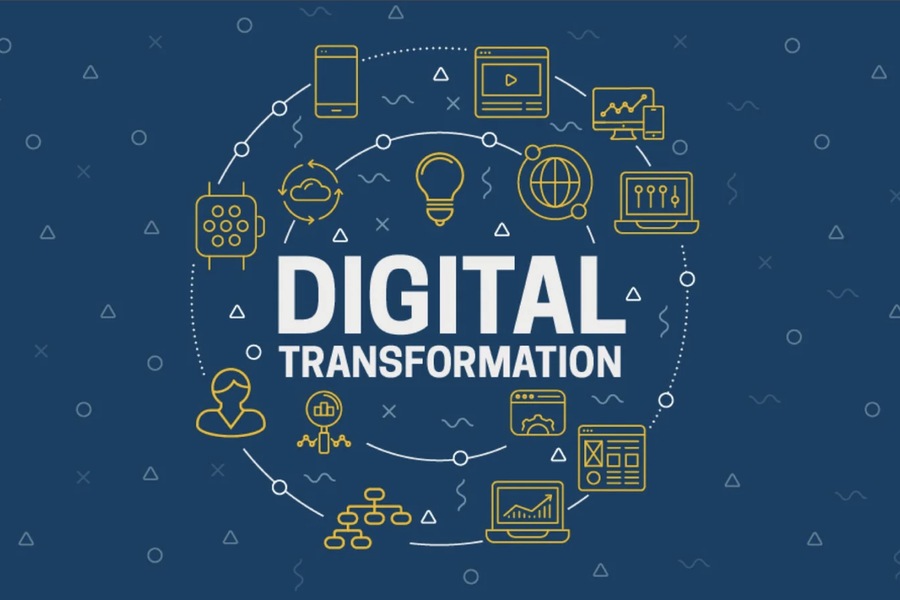In the dynamic world of event production, digital transformation has emerged as the ultimate game-changer, redefining how events are conceptualized, planned, and executed. From immersive virtual experiences to data-driven insights, the evolution of technology is reshaping the landscape for event production companies in Dubai and globally. This digital revolution isn’t merely a trend—it’s an essential strategy for companies aiming to thrive in an increasingly competitive market.
The Digital Shift in Event Production
Event production has traditionally been labor-intensive, involving meticulous planning, manual coordination, and on-the-ground logistics. However, digital transformation has introduced efficiency, creativity, and scalability into this equation.
Virtual and Hybrid Events: The COVID-19 pandemic accelerated the shift to virtual and hybrid events, with platforms like Zoom and Microsoft Teams hosting millions of users daily. In 2022, 78% of event organizers reported incorporating a virtual component into their events (EventMB, 2023).
Advanced Audio-Visual (AV) Solutions: Companies leverage cutting-edge AV technology, including 3D projection mapping, interactive LED walls, and holographic displays, to captivate audiences.
Data-Driven Insights: Advanced analytics tools now provide real-time feedback on attendee engagement, allowing event producers to refine strategies and maximize impact.
For event production companies in Dubai, these technological advancements have been particularly transformative, enabling the city to maintain its position as a global hub for innovation and excellence in event management.
Technologies Driving Change
- AI and Machine Learning
Artificial Intelligence (AI) has become a cornerstone of event production, streamlining processes and enhancing personalization.
Chatbots: AI-powered chatbots handle attendee inquiries in real-time, improving customer service.
Event Personalization: Machine learning algorithms analyze attendee preferences to offer customized agendas, sessions, and networking opportunities.
According to a report by Allied Market Research, AI in the event management market is projected to grow at a CAGR of 23.1% from 2022 to 2030.
- Augmented and Virtual Reality (AR/VR)
AR and VR technologies are revolutionizing event production, offering immersive experiences that were previously unimaginable.
Virtual Tours: VR lets attendees explore event venues or exhibition booths remotely.
Interactive Experiences: AR enhances engagement by allowing attendees to interact with digital content via their smartphones or AR glasses.
Dubai has pioneered the adoption of AR/VR for large-scale events, setting benchmarks for the global industry.
- Blockchain Technology
Blockchain has introduced transparency and security into ticketing and attendee management.
Smart Contracts: These ensure seamless payment processes between stakeholders.
Fraud Prevention: Blockchain-based ticketing systems eliminate counterfeit tickets, ensuring a smooth attendee experience.

Case Study: Digital Transformation in Dubai
Dubai’s rise as a global events powerhouse is a testament to the transformative power of technology. Leading event production companies in Dubai have embraced digital tools to deliver unparalleled experiences.
Expo 2020 Dubai: This world-class event showcased innovative technologies, including AI-guided tours, AR installations, and drone-based light shows.
The Dubai Opera: Known for its state-of-the-art AV systems, the venue uses cutting-edge technology to host concerts, theatrical performances, and corporate events.
These examples illustrate how Dubai sets global standards for integrating digital transformation into event production.
The Economic Impact of Digital Transformation
Digital transformation has enhanced the quality of events and contributed significantly to economic growth.
Cost Efficiency: Automation and digital tools reduce operational costs, enabling event producers to deliver high-quality experiences within tighter budgets.
Global Reach: Virtual events break geographical barriers, indirectly attracting international audiences and boosting tourism.
Increased ROI: Data-driven strategies ensure higher engagement and better returns for sponsors and stakeholders.
A report by Grand View Research projects the global event management software market to reach $14.4 billion by 2030, driven by increasing digital adoption.
Challenges and Opportunities
While digital transformation offers numerous benefits, it also presents challenges.
Technology Costs: High initial investments in digital infrastructure can be a barrier for smaller companies.
Cybersecurity Risks: The reliance on digital platforms increases vulnerability to cyberattacks.
Skills Gap: The industry requires skilled professionals to manage and implement advanced technologies.
However, these challenges also present opportunities for innovation. Companies that invest in cybersecurity measures, training programs, and scalable technologies will be better positioned to succeed in the digital era.

The Future of Event Production
The future of event production lies at the intersection of technology and creativity.
Sustainability: Digital tools will enable more sustainable practices, such as paperless ticketing and virtual attendance, reducing the carbon footprint of events.
Hyper-Personalization: AI will continue to enhance attendee experiences by providing tailored content and networking opportunities.
Global Collaboration: Digital platforms will make collaborating on events easier for companies worldwide, fostering innovation and diversity.
For event production companies in Dubai, these trends represent an opportunity to solidify their leadership in the global market.
Conclusion
For event production companies hoping to prosper in the twenty-first century, digital transformation is not merely a fad but a requirement. AI-powered personalization and AR/VR-powered experiences are just two examples of how technology has completely changed the events landscape.
The city’s leadership in implementing these technologies demonstrates the potential for event production businesses in Dubai to influence the industry’s future. By embracing digital transformation, these companies are enhancing the quality of their events and contributing to global economic growth and innovation. As technological advancement continues, the question is not whether to adopt digital transformation but how quickly companies can adapt to remain competitive in this rapidly evolving landscape.

Skydiver, ramen eater, DJ, vintage furniture lover and growthhacker. Producing at the intersection of modernism and elegance to answer design problems with honest solutions.


